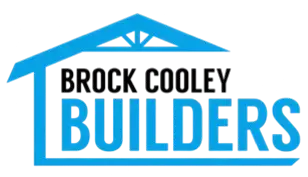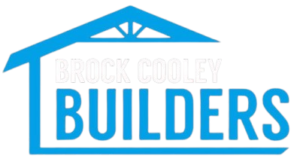Welcome to your go-to guide for checking builders’ credentials in NZ, before you commit to any contract or hand over your hard-earned money. Choosing the right builder can make or break your project, and with so many options out there, it’s easy to get overwhelmed or misled. Whether you’re building a new home, planning a renovation, or just exploring your options, this post will walk you through why verifying a builder’s qualifications matters, where to check licenses, what red flags to avoid, and how to make a confident, informed decision.
To check a builder’s credentials in NZ, search their name on the Licensed Building Practitioner (LBP) Register. Look for a valid license, the type of work they’re approved to do, and any restrictions. Also, ask for proof of insurance, references from past projects, and check if they belong to trusted associations like Master Builders or Certified Builders.
Table of Contents
Why You Should Always Check A Builder’s Credentials
Hiring a builder without verifying their credentials can lead to serious consequences that most homeowners don’t expect until it’s too late. In New Zealand, anyone can claim to be a builder, but not everyone is qualified to take on licensed building work. That’s why doing your homework before signing a contract isn’t just a smart move, it’s a necessary one.
One of the biggest risks is poor workmanship. If the builder isn’t licensed or lacks proper training, there’s a higher chance the job won’t meet the Building Code. That could mean uneven floors, structural issues, or worse, problems that aren’t visible until months later. Fixing these issues can cost thousands and often isn’t covered by insurance.
There’s also the legal side. In NZ, certain building work must be done or supervised by a Licensed Building Practitioner (LBP). If your builder isn’t licensed and carries out restricted work, you could be held responsible. Councils may refuse to sign off on consents or compliance documents, leaving you with a home that’s not legally approved.
Beyond the risks and regulations, checking credentials simply gives you peace of mind. You’ll know the person you’re trusting with your home has the qualifications and experience to do the job right. That level of confidence leads to fewer disputes, less stress, and long-term savings because you won’t be fixing costly mistakes down the track.
A little research upfront, checking the LBP register, reviewing past projects, and confirming memberships, can make a big difference. It protects your investment and ensures your project is in the hands of someone you can rely on.

What “Credentials” Actually Mean In NZ
When you’re hiring a builder in New Zealand, the word “credentials” goes beyond just having tools and a business card. Credentials are the proof that a builder is legally allowed to do certain types of work and has the skills, experience, and protections in place to complete your project properly. Here’s what you need to look for.
Licensed Building Practitioner (LBP) Explained
In New Zealand, the Licensed Building Practitioner (LBP) scheme is a government-backed system run by the Ministry of Business, Innovation and Employment (MBIE). It ensures that only qualified individuals carry out or supervise specific types of building work, known as “restricted building work” (RBW). This includes critical areas like structural framing and weather-tightness on residential buildings.
If a builder is LBP licensed, it means they have been assessed and approved by MBIE to perform this kind of work. The LBP register is public and searchable, which means you can verify their license status, type of license, and whether there are any limitations or complaints against them. Always check the LBP register before you agree to anything.
Qualifications Vs Experience
Not all builders have formal qualifications, but many have gained experience through apprenticeships or years on the job. While qualifications can show technical training and a commitment to industry standards, experience shows whether a builder can actually handle real-world projects.
The best builders often have both. You should always ask how long they’ve been in the trade, what kind of work they’ve done, and whether they’ve handled projects similar to yours. Be cautious if a builder has very little experience or can’t explain how their training relates to your type of build.
Insurance And Liability Cover
Credentials don’t just relate to skill, they also involve financial protection. Any professional builder should carry the right types of insurance. This typically includes public liability insurance and, in many cases, builders’ risk insurance.
Public liability insurance covers damage or injury that might happen on-site. Builders’ risk insurance helps cover unexpected problems like theft, fire, or natural disasters during the project. If your builder can’t show proof of active insurance, that’s a sign to walk away. Without it, you could be stuck covering the cost if something goes wrong.
Memberships (E.g., Master Builders, Certified Builders)
Some builders belong to trade groups like the Registered Master Builders Association or New Zealand Certified Builders. These groups set strict entry criteria and often require builders to meet ongoing standards of workmanship and ethics. They also sometimes offer warranties or dispute resolution services.
While membership in these groups isn’t legally required, it can be a helpful sign that the builder is committed to professionalism. Still, don’t treat membership as a replacement for checking licenses and insurance; these groups don’t replace government regulation.
If you’re serious about getting your project done right, take time to check each of these elements. A builder with solid credentials won’t hesitate to share their license number, insurance details, or work history. It’s not about being skeptical, it’s about protecting your home, budget, and peace of mind.

Where To Verify A Builder’s License
Before you hire any builder in New Zealand, take time to confirm their credentials through reliable, government-backed sources. Trust alone isn’t enough; verifying a builder’s license helps ensure your project is handled by someone who’s legally qualified and accountable under NZ building law. Below are two trustworthy ways to check a builder’s license status: the LBP Register and local council or MBIE records.
LBP Register
The Licensed Building Practitioner (LBP) Register is the most direct way to confirm a builder’s legal standing in New Zealand. The register is managed by the Ministry of Business, Innovation and Employment (MBIE) and includes all tradespeople who hold a current license for restricted building work.
How to search:
Go to the Licensed Building Practitioner (LBP) and enter the builder’s full name or license number. You can also filter results based on license class or location to narrow down your search.
What to look for:
Once you find the builder, pay close attention to three key details:
- License Class: This shows what kind of work they’re approved to carry out (e.g. Carpentry, Roofing, Bricklaying).
- License Status: Make sure their license is marked as “active.” Expired or suspended licenses should be a red flag.
- Restrictions or Notes: Some licenses may have limitations or notes regarding disciplinary action. These details are listed openly in the register and can tell you if a builder has breached any rules in the past.
Using the LBP Register ensures that the builder you hire is not only trained but also monitored by a professional body. Only LBPs are legally allowed to carry out or supervise certain restricted building work in NZ, including foundations, framing, and weathertightness.
MBIE And Local Council Records
While the LBP Register confirms licensing, local councils and the MBIE also maintain important records that give you a clearer picture of a builder’s performance and compliance history.
- How councils enforce building laws:
Local councils are responsible for issuing building consents and ensuring that construction complies with the Building Code. If a builder has received multiple stop-work notices or has failed inspections in the past, this information may be recorded with the council. You can request this information by contacting the local building consent authority (BCA) in your area. - Building consents and compliance histories:
Ask the council whether the builder has completed other projects in your area and whether those jobs passed inspection. You can also check if the builder has been involved in any consent applications or disputes. This kind of background check helps you avoid hiring someone who cuts corners or regularly fails to meet building standards.
Together, the LBP Register and council records give you a full view of a builder’s professional track record. If both sources check out, you can move forward with confidence. If not, it’s better to walk away than risk delays, hidden costs, or legal problems down the line.
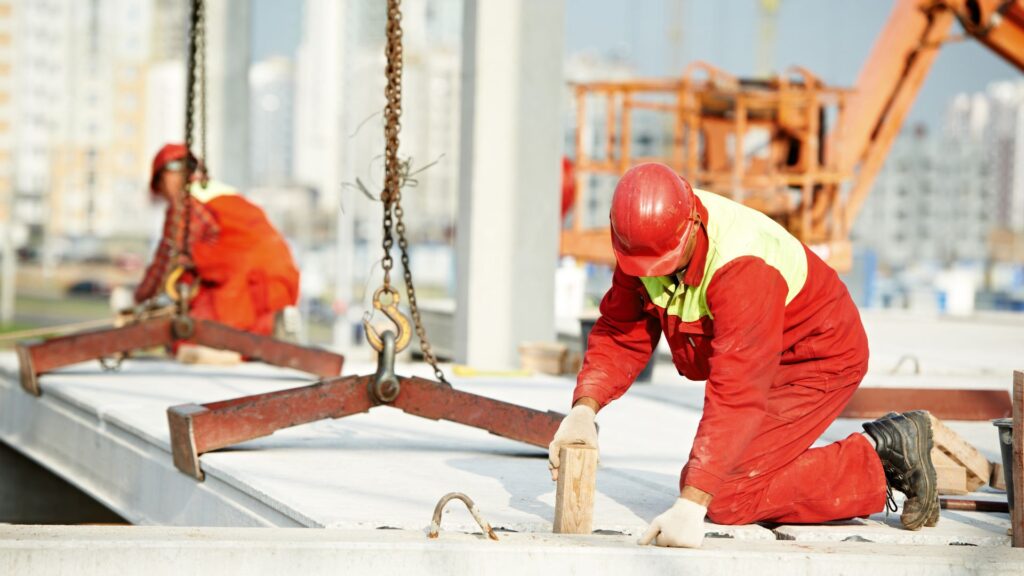
How To Spot A Trustworthy Vs Untrustworthy Builder
Choosing the right builder is one of the most important decisions you’ll make when starting a home project. It’s not just about price or how fast they can get started, it’s about trust. A builder with the right credentials and attitude will save you time, money, and stress. But how do you tell the difference between a reliable professional and someone who may cut corners or disappear halfway through the job?
Start by looking for red flags that suggest a builder might not be trustworthy. One of the most common warning signs is receiving a vague or unclear quote. If a builder avoids giving a written breakdown of costs or timelines, it’s a sign they might add extra charges later or delay the project. Another red flag is a refusal to show licenses, insurance, or other important documents. Builders who are qualified and confident in their work won’t hesitate to show proof. Also, be cautious if they can’t provide references or dodge your questions about past clients.
On the other hand, there are clear green flags that show you’re dealing with a professional. A trustworthy builder will offer a detailed written contract outlining every part of the project, from materials to payment schedule. They’ll also share examples of their past work, such as before-and-after photos, testimonials, or even invite you to visit a current job site. Happy clients are another strong sign you’re in good hands. If others have had a positive experience and are willing to vouch for the builder, that’s a good indication you will too.
Don’t be afraid to ask if you can visit one of their active or completed sites. Seeing their work up close gives you a feel for their standards and attention to detail. It also shows whether their promises match reality. A builder who is proud of their work will have nothing to hide.
In short, spotting the right builder means paying attention to how they communicate, what they’re willing to share, and how they treat your questions. Trust is earned, so take the time to check, verify, and make sure you’re working with someone who values your home as much as you do.

What Questions To Ask Before Hiring A Builder
Hiring a builder is a big decision that affects the success of your entire project. Before you sign any contract or pay a deposit, take the time to ask the right questions. This step helps you understand if the builder is qualified, trustworthy, and a good fit for your needs. It’s not just about comparing prices, it’s about making sure the builder knows what they’re doing and can deliver the quality you expect.
- Are You LBP Registered?
In New Zealand, certain building work requires a Licensed Building Practitioner (LBP). This is a legal requirement under the Building Act. Asking this question confirms that the builder is qualified and allowed to do restricted building work such as structural or weather-tightness elements. You can verify their license on the official LBP Register. If they’re not registered and the job needs an LBP, that’s a red flag. - Can I See Your Insurance And Past Projects?
Insurance protects you and the builder if something goes wrong. Ask for proof of public liability and contract works insurance. This shows the builder takes their work seriously and is prepared for the unexpected. Also, request to see their recent work. Quality builders will have a portfolio or photos of completed projects. If possible, ask to visit a past job site or speak with a previous client. This gives you a clear idea of their craftsmanship and reliability. - Have You Worked On Similar Homes?
Experience in similar projects is a strong indicator of how well the builder will handle yours. For example, building a new home on a slope is very different from a flat-site renovation. Ask if they’ve handled projects like yours, how often, and what challenges they’ve faced. A builder who knows the type of work you’re planning is more likely to complete it smoothly and to a high standard. - How Do You Handle Variations And Delays?
Variations , changes to the original scope , are common in building projects. But they can become expensive or cause disputes if not managed well. Ask how the builder handles changes, what their process is for updating quotes, and whether they provide written confirmation before making changes. Also, talk about delays. What happens if weather, supply issues, or council approvals slow things down? A reliable builder should have a clear plan for keeping you informed and handling unexpected setbacks.
By asking these questions, you’ll protect yourself from poor workmanship and surprises later in the project. It also helps you find someone who communicates clearly, takes pride in their work, and respects your time and budget. Don’t rush this step; the more you ask upfront, the more confident you’ll feel about your decision.
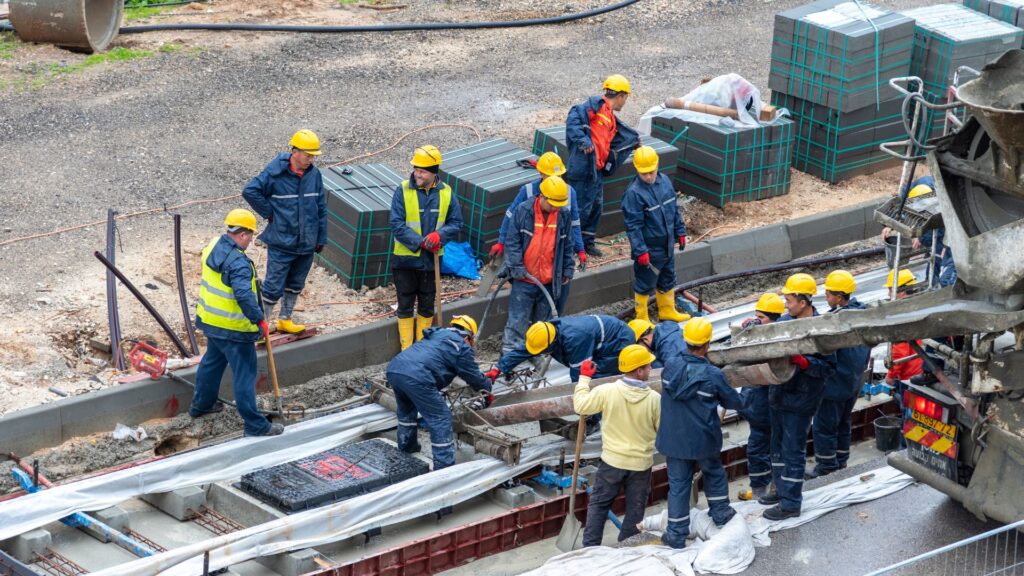
Understanding Builder Associations And What They Mean
When you’re planning a construction project in New Zealand, you’ll likely come across terms like “Master Builder” and “Certified Builder.” These titles may sound official, but what do they actually mean? More importantly, do they guarantee quality? Here’s what you need to know before you sign a contract.
Master Builders Vs Certified Builders
Master Builders and Certified Builders are not government-issued qualifications. Instead, they are private trade associations that builders can choose to join. The Registered Master Builders Association (RMBA) and the New Zealand Certified Builders Association (NZCB) are the two most recognized groups in the country.
To join these associations, builders need to meet certain criteria. For example, RMBA requires a proven history of successful projects, valid insurance, and trade qualifications. NZCB only accepts builders who hold a National Certificate in Carpentry or higher. Both associations carry strict codes of conduct and promote professional standards among their members.
Being part of either association shows that a builder values their reputation, follows industry best practices, and is committed to delivering reliable service. But it’s important to understand that these memberships are voluntary and not the same as holding a Licensed Building Practitioner (LBP) license, which is legally required for restricted building work in NZ.
Do These Titles Guarantee Quality?
No, not always. Membership in these associations is a good indicator of professionalism, but it doesn’t automatically mean high-quality work. Some excellent builders choose not to join any association. Others may be members but still fall short of expectations. That’s why you should never rely on the title alone.
Use these memberships as one of many trust signals, not a final deciding factor. Combine it with your own due diligence: check the builder’s license on the LBP Register, ask for references, review past projects, and get a detailed written quote. These extra steps help confirm you’re dealing with someone reliable, regardless of their title.
How To Use Their Dispute Resolution Services
One benefit of hiring a builder who belongs to RMBA or NZCB is access to their dispute resolution support. If something goes wrong with your project and you’re not able to resolve it directly with the builder, these associations can step in.
The Master Build Guarantee is offered to clients working with RMBA members. It covers structural defects, loss of deposit, and non-completion under certain conditions. If a dispute arises, the association provides a structured complaints process and mediation services.
Likewise, NZCB offers the Halo Guarantee, which provides protection against poor workmanship, incomplete jobs, and issues after the work is done. They also offer formal dispute resolution procedures that involve reviewing evidence, hearing both sides, and helping to reach a fair outcome.
These services don’t replace legal channels, but they give you extra protection and peace of mind during your build. Just make sure the builder actually offers the guarantee, and that you’re registered for it before work begins.

Tips For First-Time Builders Or Renovators In NZ
Building or renovating for the first time in New Zealand can feel exciting, but it also comes with plenty of risks if you’re not prepared. Whether you’re planning a home extension, kitchen upgrade, or building from scratch, taking the right steps early can save you time, money, and stress. These practical tips will help you get started the right way and avoid common mistakes many homeowners make.
Start With A Clear Budget
Before you contact any builder or designer, set a realistic budget. Don’t just estimate the cost of the build; include everything from design fees, permits, materials, and council inspections to temporary accommodation if needed. Always include a buffer of at least 10–15% for unexpected costs. Builders often provide estimates, not fixed prices, so be clear on what’s included and what’s not. A defined budget also helps your builder suggest realistic options that suit your financial limits.
Don’t Skip The Due Diligence Step
Checking a builder’s credentials isn’t optional, it’s a must. Make sure they are listed on the Licensed Building Practitioner (LBP) Register. Ask to see proof of insurance, past project photos, and client references. Take time to verify every detail. A builder might sound great on the phone but have poor reviews or no legal qualifications. Doing your homework now helps avoid problems later. Look up their track record with your local council or building authority to see if there have been past complaints or issues.
Always Get Written Contracts And Agreements
Verbal promises mean nothing in construction. Everything you agree on, price, timeline, materials, and scope of work, must be in writing. This protects both you and the builder. Use a proper building contract that covers payment stages, variation handling, dispute resolution, and warranties. Make sure you read and understand the terms before signing. If something seems unclear, ask questions or get legal advice. A written contract is your best defense if things don’t go as planned.
These three tips may seem simple, but they make a huge difference. Being proactive from the start gives you better control, improves communication with your builder, and helps make your project a success, without nasty surprises along the way.

Common Mistakes Kiwis Make When Choosing A Builder
When planning to build or renovate a home in New Zealand, many Kiwis fall into the trap of rushing through the builder selection process. This can lead to budget blowouts, project delays, or worse, unfinished or substandard work. To help you make an informed decision, it’s important to be aware of the common mistakes others often make.
Going With The Cheapest Quote
One of the most common missteps is choosing a builder based solely on the lowest quote. While keeping costs under control is important, the cheapest option often comes with hidden risks. A low quote might mean shortcuts in materials, inexperienced subcontractors, or poor attention to detail. You might save upfront, but it could cost more in repairs or delays down the line. Instead of focusing only on price, consider the value offered, what’s included, the builder’s track record, and their commitment to quality.
Skipping The Reference Check
Some homeowners skip this step out of convenience or trust a builder’s word without verifying past work. That’s a big mistake. Speaking with previous clients gives you real insight into how a builder communicates, manages timelines, handles unexpected issues, and finishes a job. Ask for at least two or three recent references and take the time to follow up. If possible, visit a completed project or an active site. A good builder will always be open to sharing references and showcasing their work.
Not Confirming Credentials With Official Sources
Assuming a builder is qualified without checking is risky. In New Zealand, certain types of building work must be carried out or supervised by a Licensed Building Practitioner (LBP). Many Kiwis rely on word-of-mouth or a builder’s own claims instead of confirming their status on the official LBP Register. This can lead to compliance issues and insurance problems. Always check their license with the Licensed Building Practitioner (LBP) and make sure their details are current and valid. This step only takes a few minutes but can save you a major headache later.
Avoiding these common mistakes helps you find a reliable builder who can deliver quality results without surprises. Take the time to research, ask the right questions, and verify everything. It’s not just about building a home, it’s about building it right.

Checklist: How To Verify A Builder’s Credentials In NZ
Hiring the right builder is one of the most important steps in any construction or renovation project. Before you sign anything or hand over a deposit, you need to confirm that your builder is legally qualified, experienced, and trustworthy. This checklist gives you a clear, step-by-step process to help you verify a builder’s credentials in New Zealand. It’s written for homeowners and first-time renovators who want to avoid risk and make confident decisions.
- Start With The LBP Register
Visit the official Licensed Building Practitioner (LBP) Register. Enter the builder’s name or license number. Confirm they are currently licensed, check the license class (e.g., carpentry, site, foundation), and review any restrictions or disciplinary history. - Ask For Their LBP Number And ID
A reputable builder will be open about their LBP status. Ask them directly for their license number and a photo ID that matches the name on the LBP register. This ensures you’re not dealing with someone using another person’s credentials. - Confirm Membership In Professional Associations
Check if the builder is a member of a recognized trade group such as Master Builders or Certified Builders. While not legally required, these memberships often come with added quality guarantees and access to dispute resolution services. - Request Proof Of Insurance
Ask to see certificates for public liability insurance and builder’s risk insurance. This protects you from financial loss if there’s damage, injury, or incomplete work during the project. - Check Past Project References
Ask for contact details of recent clients and speak with them directly. Ask if the builder completed the work on time, on budget, and to a high standard. You can also request photos or visit completed jobs if possible. - Review The Building Consent History
Builders working on restricted building work must follow local council building consent processes. Ask the builder for proof of recent consents issued under their license and double-check with your local council if needed. - Search Online Reviews And Business Listings
Look beyond testimonials on the builder’s website. Search their name on Google, BuildersCrack, NoCowboys, or social media platforms. While reviews shouldn’t be the only factor, they often reveal patterns in communication, professionalism, or problems. - Ask For A Written Contract
A legitimate builder will always offer a written contract outlining scope of work, pricing, timelines, materials, and dispute resolution terms. Avoid any builder who operates with only verbal agreements or handwritten notes. - Look For Clear Communication And Transparency
Gauge how the builder communicates from your first interaction. Reliable builders are upfront, easy to reach, and willing to answer questions. If they avoid giving straight answers, it’s best to walk away. - Trust Your Instincts
If something feels off, whether it’s pushy sales tactics, unwillingness to share documents, or inconsistent information, don’t ignore it. Take time to verify everything before moving forward.
Verifying a builder’s credentials in NZ doesn’t take long, but it can save you from major issues down the line. Use this checklist during your builder search and keep it on hand when comparing quotes or preparing to sign a contract. Your future home or renovation deserves a builder you can trust.
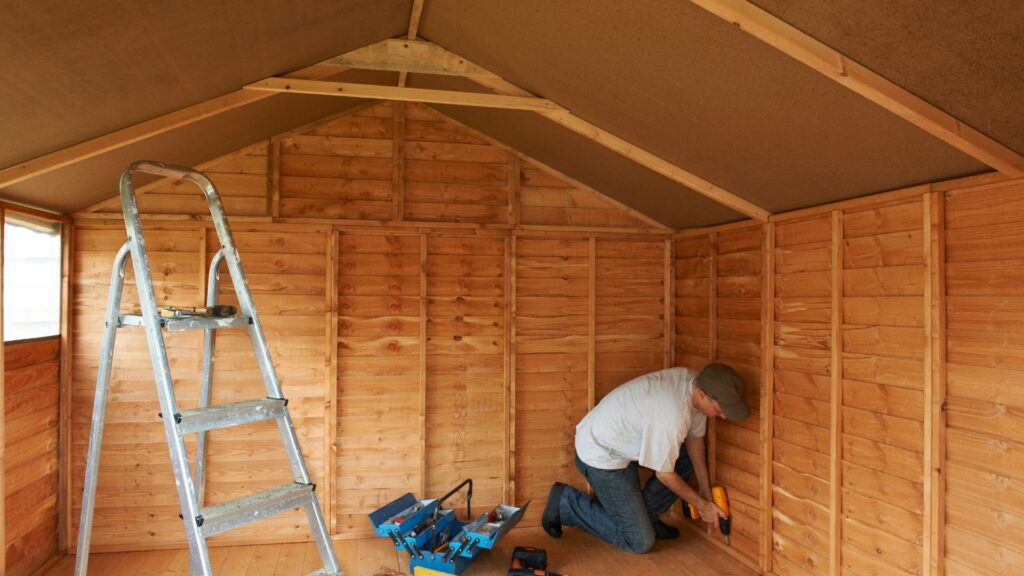
What To Do If You Discover A Fake Or Unlicensed Builder
Discovering that your builder isn’t licensed, or worse, is operating under fake credentials, can be stressful and costly. But you still have options, and the faster you act, the better you can protect your investment and avoid further risks.
Start by confirming the issue. Double-check the Licensed Building Practitioner (LBP) Register at Licensed Building Practitioners. Search using the builder’s name or license number. If they don’t appear or show an expired or suspended license, that’s a red flag. Also, watch for signs like vague company details, missing insurance documents, or hesitations to show proof of qualifications. Once you’re sure something’s wrong, take the next step, reporting it.
In New Zealand, report any suspected fake or unlicensed builder to the Ministry of Business, Innovation and Employment (MBIE). This government body oversees building regulations and can investigate builders who violate the rules. You can file a complaint directly through their website. If the builder has already begun work or taken money upfront, you should also contact your local council. Councils often keep records of building activity and may intervene if the work breaches building codes.
If you’ve already signed a contract or made payments, don’t panic. You still have legal rights. Contact a construction lawyer immediately to review your contract and determine if you can cancel it or recover your money. If the builder lied about being licensed, that can be considered misrepresentation or fraud, both are serious offenses under New Zealand law. You may be entitled to compensation or able to pursue a claim through the Disputes Tribunal or the courts, depending on the size of your loss.
To protect your investment going forward, avoid making more payments until things are clarified. Stop any work on-site, take detailed photos of progress or damage, and document all communications with the builder. This paper trail will help if legal action becomes necessary. If you’ve hired the builder through a trade site or platform, notify them as well; they may suspend the profile or cooperate with your claim.
Moving forward, always verify every builder’s LBP status before signing anything. Ask for multiple references, a clear written contract, proof of insurance, and confirmation of their license class. A little extra time upfront could save you thousands in repairs, legal fees, and emotional stress.
Not sure where to start with choosing the right builder? Visit us to get trusted help, tools, and advice for your next building project in NZ.

FAQs: About How To Check A Builder’s Credentials In NZ
Why is it important to check a builder’s credentials in NZ?
Verifying a builder’s credentials protects you from poor workmanship, legal issues, and financial loss. It ensures the builder is qualified and legally allowed to perform the work.
What is an LBP and why does it matter?
LBP stands for Licensed Building Practitioner. In New Zealand, certain building work must be done or supervised by an LBP. It’s a legal requirement under the Building Act.
Where can I verify if a builder is licensed in NZ?
You can check the LBP Register at https://www.lbp.govt.nz/ by searching the builder’s name or license number. It shows license status, class, and any restrictions.
What credentials should a qualified builder in NZ have?
A qualified builder should hold an active LBP license, have relevant experience, provide proof of insurance, and ideally be a member of associations like Master Builders.
Are Master Builders or Certified Builders licenses?
No, they are trade associations. Membership shows commitment to quality, but it is not a legal license. Always check the LBP Register for legal credentials.
What red flags should I look for when choosing a builder?
Red flags include vague quotes, reluctance to show credentials, no references, poor communication, and pressure to sign quickly without a contract.
Can I ask a builder for references and past projects?
Yes, and you should. Reliable builders will gladly share references and photos or let you visit previous work sites. It shows transparency and confidence in their work.
What questions should I ask before hiring a builder?
Ask if they are LBP registered, how long they’ve been in business, if they have insurance, how they manage delays, and if they’ve worked on similar projects.
What should I do if I discover a builder is unlicensed?
Avoid signing any contracts. Report them to MBIE or your local council. If work has started, seek legal advice to protect your rights and your investment.
Is it enough to rely on online reviews when choosing a builder?
No. While reviews are helpful, always verify their credentials through official channels and speak directly to past clients for reliable feedback.
Conclusion
Before you move forward with any builder in New Zealand, take the time to verify their credentials instead of relying on assumptions or verbal promises. Doing these checks upfront—like confirming their LBP license, reviewing past projects, and asking the right questions—can save you from costly mistakes and unfinished work. Many homeowners rush the process, only to face delays, disputes, or even legal trouble later on. Slow down, do your due diligence, and don’t skip this vital step. If you’re unsure where to begin, download our free builder credential checklist or get in touch through our contact form to get pointed in the right direction.
